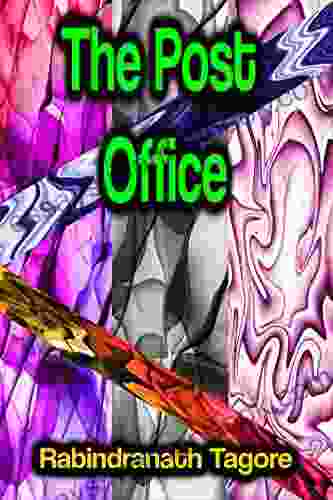The Post Office: A Literary Journey into Love, Longing, and the Human Condition

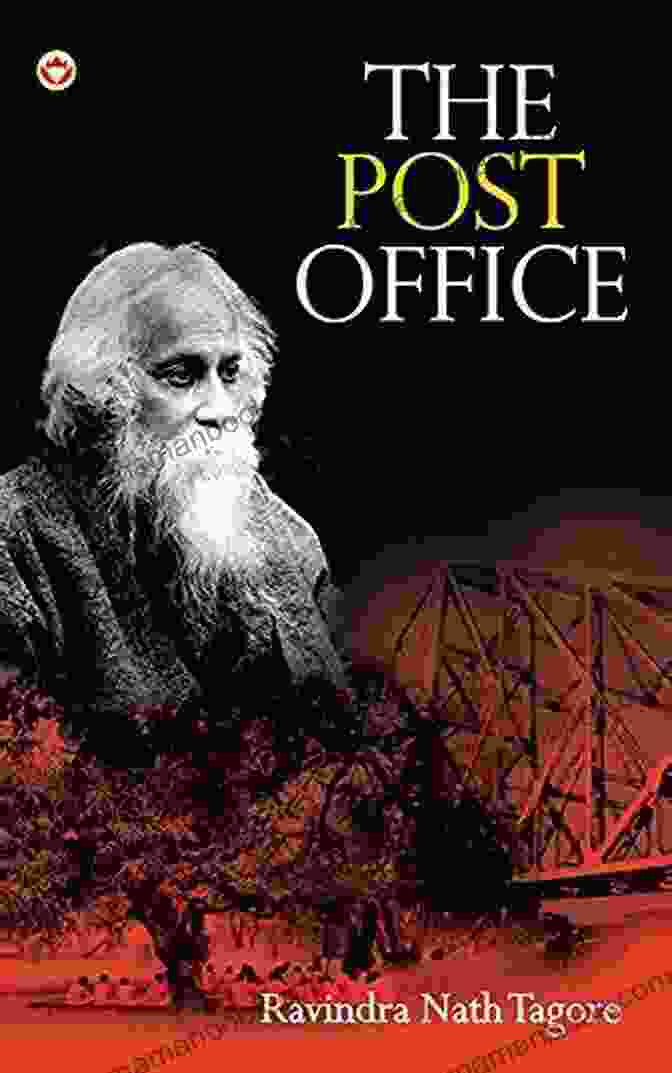
Rabindranath Tagore's The Post Office is a mesmerizing literary masterpiece that has captivated readers worldwide since its publication in 1913. As one of the most renowned works of Indian literature, The Post Office has earned its place in the literary canon for its profound exploration of human emotions and the transformative power of human connection. This essay aims to provide an in-depth analysis of this beloved classic, examining its themes, characters, and the socio-cultural context that shaped its creation.
4.3 out of 5
| Language | : | English |
| File size | : | 4731 KB |
| Text-to-Speech | : | Enabled |
| Screen Reader | : | Supported |
| Enhanced typesetting | : | Enabled |
| Print length | : | 31 pages |
The Plot: A Tale of Love, Loss, and Longing
The Post Office is set in the serene village of Shahajpur, where a young boy named Amal lives a secluded life with his widowed aunt, Sudha. Amal yearns for a life beyond the confines of his village and dreams of exploring the world. One day, a post office is established in Shahajpur, bringing with it the promise of connection and communication. This excites Amal, who becomes captivated by the idea of sending letters to distant lands. A poignant and complex love story unfolds as Amal embarks on a journey of self-discovery and longing.
Characters: A Tapestry of Dreams and Desires
- Amal: The protagonist of the story, Amal is a sensitive and imaginative young boy who yearns for adventure and a life beyond his village. His dreams and aspirations are both beautiful and heartbreaking, as he grapples with the limitations of his circumstances.
- Ratan: Amal's friend and fellow dreamer, Ratan shares Amal's thirst for adventure. Together, they explore the world of literature and imagination, finding solace in each other's dreams.
- Madhav: The village postmaster, Madhav is a kind and compassionate man who becomes a mentor to Amal. He encourages Amal's dreams and helps him navigate the complexities of life.
- Sudha: Amal's widowed aunt, Sudha is a loving and protective guardian who struggles to understand Amal's yearnings. Her love for Amal is both a source of strength and constraint for the young boy.
Themes: Exploring Love, Isolation, and the Human Spirit
At the heart of The Post Office lies a profound exploration of universal human themes, including:
- Love and Longing: The Post Office is a poignant tale of love and longing. Amal's unrequited love for his distant pen pal, Mr. Nandalal, serves as a powerful metaphor for the human desire for connection and the pain of unfulfilled desire.
- Isolation and Loneliness: The novel explores the theme of isolation and loneliness through Amal's experience. Confined to his village and longing for a life beyond, Amal grapples with feelings of isolation and a deep yearning for companionship.
- The Human Spirit: Despite its themes of longing and isolation, The Post Office is ultimately a celebration of the human spirit. Amal's journey of self-discovery and his resilience in the face of adversity serve as a testament to the indomitable power of the human soul.
Socio-Cultural Context: East Meets West
The Post Office reflects the socio-cultural context of early 20th century India, a time marked by the convergence of Western influence and traditional Indian values. Tagore himself was a product of this cultural synthesis, having been educated in both India and England. The novel explores the tension between tradition and modernity, with characters like Amal representing the yearning for Western ideas, while Sudha embodies the values of Indian tradition.
The Post Office also reflects the impact of colonialism on Indian society. The establishment of the post office in Shahajpur symbolizes the encroachment of Western influence on traditional Indian life. However, the novel ultimately transcends cultural boundaries, offering a universal message of love, longing, and the human search for meaning.
Legacy and Significance: A Literary Masterpiece
The Post Office has had a profound impact on Indian literature and beyond. The novel's timeless themes and masterful storytelling have resonated with readers for over a century. It has been translated into numerous languages and has been adapted into films, plays, and operas. The Post Office has also been critically acclaimed, with Tagore winning the Nobel Prize in Literature in 1913 for his contribution to literature.
The enduring significance of The Post Office lies in its ability to capture the complexities of the human condition. Through its exploration of love, longing, and the human search for connection, the novel offers a profound and deeply moving meditation on the human experience.
Rabindranath Tagore's The Post Office is a literary masterpiece that transcends time and culture. Its profound exploration of love, longing, and the human spirit has captivated generations of readers. Through its vivid characters, poignant storytelling, and timeless themes, The Post Office remains a powerful and deeply moving testament to the power of literature to illuminate the human condition.
4.3 out of 5
| Language | : | English |
| File size | : | 4731 KB |
| Text-to-Speech | : | Enabled |
| Screen Reader | : | Supported |
| Enhanced typesetting | : | Enabled |
| Print length | : | 31 pages |
Do you want to contribute by writing guest posts on this blog?
Please contact us and send us a resume of previous articles that you have written.
 Top Book
Top Book Novel
Novel Fiction
Fiction Nonfiction
Nonfiction Literature
Literature Paperback
Paperback Hardcover
Hardcover E-book
E-book Audiobook
Audiobook Bestseller
Bestseller Classic
Classic Mystery
Mystery Thriller
Thriller Romance
Romance Fantasy
Fantasy Science Fiction
Science Fiction Biography
Biography Memoir
Memoir Autobiography
Autobiography Poetry
Poetry Drama
Drama Historical Fiction
Historical Fiction Self-help
Self-help Young Adult
Young Adult Childrens Books
Childrens Books Graphic Novel
Graphic Novel Anthology
Anthology Series
Series Encyclopedia
Encyclopedia Reference
Reference Guidebook
Guidebook Textbook
Textbook Workbook
Workbook Journal
Journal Diary
Diary Manuscript
Manuscript Folio
Folio Pulp Fiction
Pulp Fiction Short Stories
Short Stories Fairy Tales
Fairy Tales Fables
Fables Mythology
Mythology Philosophy
Philosophy Religion
Religion Spirituality
Spirituality Essays
Essays Critique
Critique Commentary
Commentary Glossary
Glossary Bibliography
Bibliography Index
Index Table of Contents
Table of Contents Preface
Preface Introduction
Introduction Foreword
Foreword Afterword
Afterword Appendices
Appendices Annotations
Annotations Footnotes
Footnotes Epilogue
Epilogue Prologue
Prologue Deanna Chase
Deanna Chase Adam Vines
Adam Vines Leslie North
Leslie North J M Stengl
J M Stengl Vidya Vasudevan
Vidya Vasudevan Matt Buonocore
Matt Buonocore Adele Nozedar
Adele Nozedar Gail Koger
Gail Koger Wesley Dingler
Wesley Dingler Sarah Smarsh
Sarah Smarsh James O Brien
James O Brien Frank Watson
Frank Watson Russell Madden
Russell Madden Everina Maxwell
Everina Maxwell Richard M Knittle Jr
Richard M Knittle Jr Donald Revell
Donald Revell Rania Batayneh
Rania Batayneh Julie Checkoway
Julie Checkoway Audrey Monke
Audrey Monke Greg Strandberg
Greg Strandberg
Light bulbAdvertise smarter! Our strategic ad space ensures maximum exposure. Reserve your spot today!
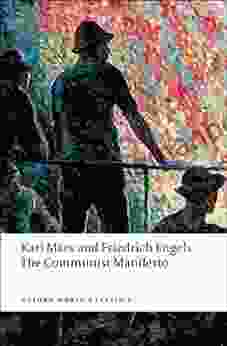
 Ibrahim BlairThe Communist Manifesto: A Timeless Critique of Capitalism and a Vision for a...
Ibrahim BlairThe Communist Manifesto: A Timeless Critique of Capitalism and a Vision for a...
 Dwight BlairKatie Comes Undone: Experience the Enchanting Journey of a Vampire's Quest...
Dwight BlairKatie Comes Undone: Experience the Enchanting Journey of a Vampire's Quest...
 Richard AdamsThe Ultimate Preschool Activity Guide: Nurturing Little Minds Through Play...
Richard AdamsThe Ultimate Preschool Activity Guide: Nurturing Little Minds Through Play... Charles DickensFollow ·15.5k
Charles DickensFollow ·15.5k Peter CarterFollow ·8.4k
Peter CarterFollow ·8.4k Craig CarterFollow ·2.6k
Craig CarterFollow ·2.6k Rod WardFollow ·7.3k
Rod WardFollow ·7.3k Theo CoxFollow ·2.4k
Theo CoxFollow ·2.4k Langston HughesFollow ·2.3k
Langston HughesFollow ·2.3k Italo CalvinoFollow ·2.3k
Italo CalvinoFollow ·2.3k Leo MitchellFollow ·5.7k
Leo MitchellFollow ·5.7k
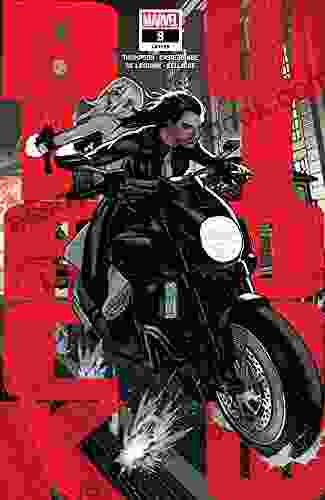
 Dean Butler
Dean ButlerBlack Widow 2024: A Comprehensive Guide to Kelly...
In 2024, Marvel...
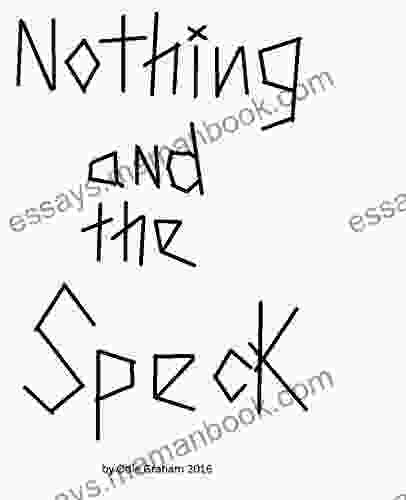
 Gage Hayes
Gage HayesNothing and the Speck: An In-Depth Analysis of Yana...
Yana Toboso's works, particularly the manga...
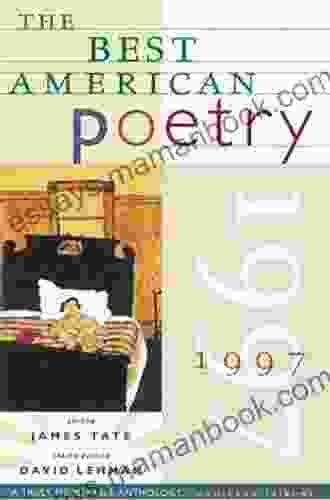
 Stan Ward
Stan WardThe Best American Poetry 1997: James Tate
The Best American Poetry...

 Corey Green
Corey GreenThe Chance of Home: Exploring the Poetic Landscape of...
Immerse yourself in the evocative world of...
4.3 out of 5
| Language | : | English |
| File size | : | 4731 KB |
| Text-to-Speech | : | Enabled |
| Screen Reader | : | Supported |
| Enhanced typesetting | : | Enabled |
| Print length | : | 31 pages |


